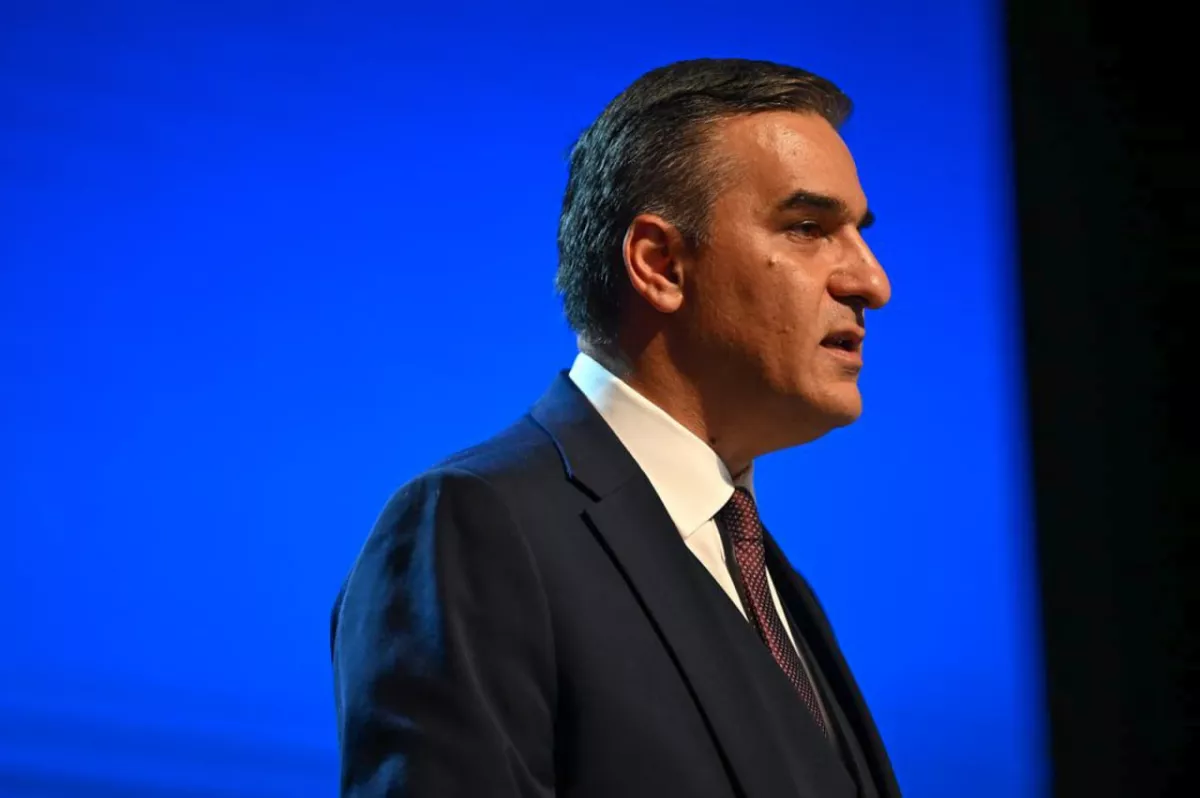Wings of ambition Tatoyan’s flight of political fantasy
We have already written about the reaction within the Armenian ruling elite to President Ilham Aliyev’s recent statements concerning the historical lands of Azerbaijan. Meanwhile, opposition forces have also begun commenting on this development—naturally, in order to accuse Pashinyan and his team of taking a supposedly conciliatory stance towards Baku.
One of them is former Armenian Ombudsman Arman Tatoyan, who a month ago founded a political initiative with the absurdly pretentious name “Wings of Unity.” During the presentation of this movement, Tatoyan declared his ambition to become prime minister, pledging to unite society and focus on addressing pressing national issues.
Recently, he unleashed a whole barrage of moralising against the current authorities, never missing a chance to “remind” everyone, every other sentence, of himself as the country’s future leader.
“When I become the head of Armenia, the entire diplomatic, informational, political, and academic toolkit will be employed to present to the international community the full essence of Azerbaijan’s expansionist concept,” Tatoyan began his address.
This is quite demagogic, as he portrays the situation as though Pashinyan’s government had not been doing precisely the same thing—“presenting to the international community the full essence of Azerbaijan’s expansionist concept”—until it eventually realised that this path led nowhere.
But the former ombudsman seems unstoppable: “Every time the Azerbaijani state tries to take any measures based on this [expansionist concept] abroad, it will become a serious problem. The involvement of international representatives will be presented as support for the invasion plans and an obstacle to the establishment of peace. Statements coming from Azerbaijan will be presented to the mediators of the process, they will receive feedback, and they will not be silenced by Armenia’s Foreign Ministry under any circumstances.”

In some ways, these verbal exercises resemble the streams of consciousness once produced by former Foreign Minister Vardan Oskanian — with the only difference being that Oskanian at least tried to supply his speeches with a hint of specifics, which, however, were equally meaningless and useless.
Tatoyan, meanwhile, continues his sermonising “The leader of the country must be able to foresee risks, assess them soberly, and promptly employ diplomatic tools to neutralise threats.” One wonders — is anyone in Armenia still falling for such dreary moralising?
“In our hands lie both the law and historical facts. We want peace and stability for the entire region, but no one has the right to pursue expansionist projects against our state without receiving a clear political response. This is the path toward building peace — and as a leader, that is exactly what I will do,” the former ombudsman continued.
All in all, everything is quite clear. Tatoyan’s repeated claims about Azerbaijan’s supposed “expansionist projects” are designed to awaken in Armenian society a “sacred” sense of indignation toward Azerbaijan and, most importantly, toward the peace process itself. In this regard, it would be quite interesting to see the upcoming Gallup Institute report (which we’ve been waiting for) and find out just how popular Tatoyan’s initiative really is.
It would be rather strange if Tatoyan were to gain genuine popularity among the public, given reports linking him to the Karabakh clan — a group largely despised by most Armenians — and more specifically to Serzh Sargsyan, though the latter tries to deny this somewhat cautiously.
It seems we are witnessing the same pattern that emerged in the case of the Armenian Church. The leaders of the Karabakh clan, fully aware that their names can no longer rally any meaningful segment of Armenian society under their banners, put forward last year what they considered their trump card — the Armenian Church. However, recent developments show that broad segments of Armenian society are far from eager to support the Church in its struggle against the government.
And so, the Karabakh elite are desperately tossing new figures onto the political stage, effectively relying on sheer luck. Tatoyan is a textbook example of this tactic.
Now, it remains to be seen what Pashinyan’s next move will be.








